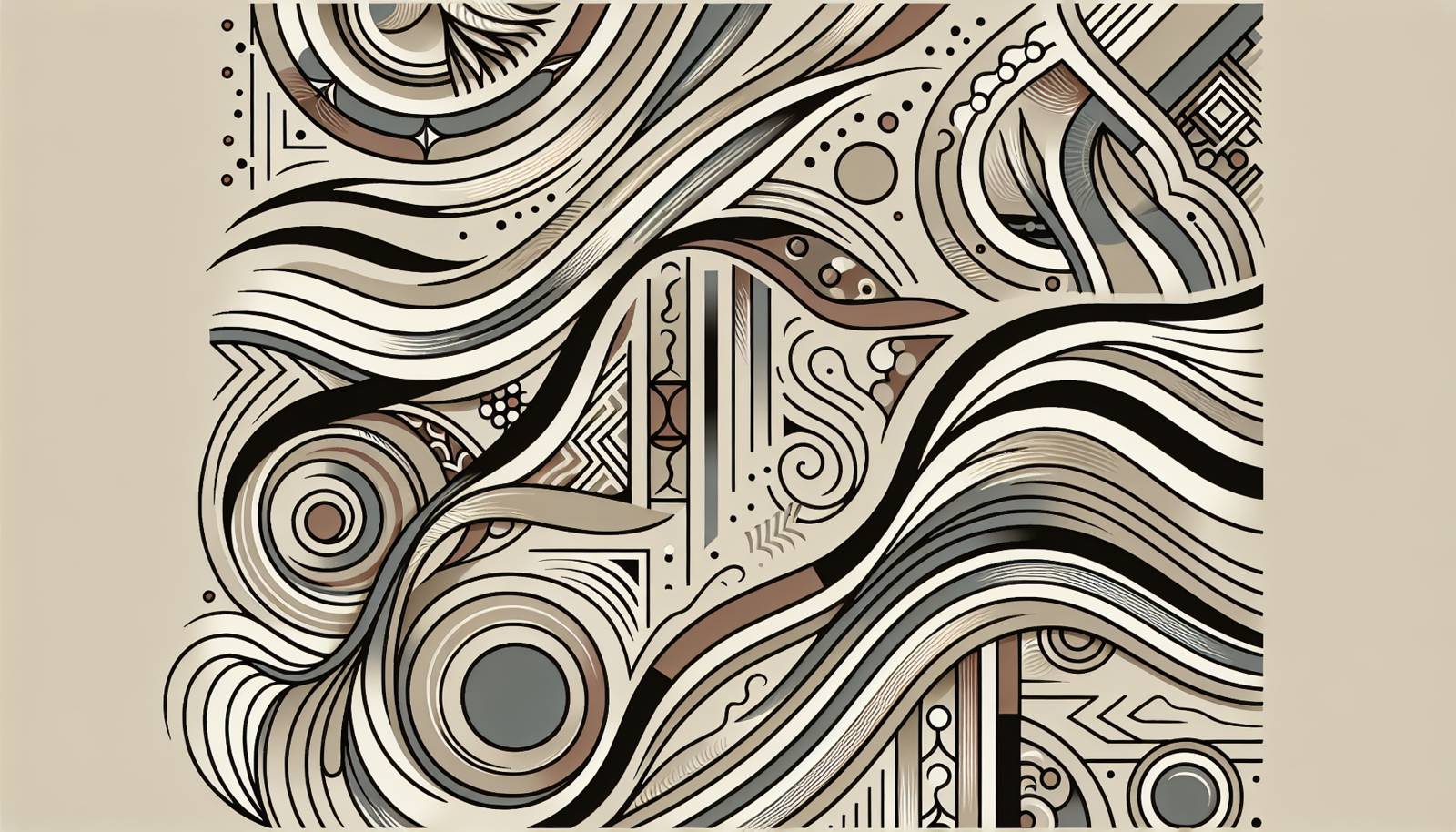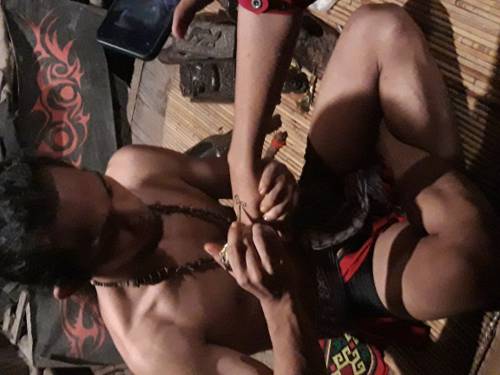
FAQ About The Role of Culturally Inspired Tattoos in Identity Formation

What is the significance of culturally inspired tattoos in personal identity formation?
Culturally inspired tattoos often serve as symbols of personal identity by reflecting an individual's heritage, beliefs, and values. These tattoos can act as a visual representation of one's ancestral roots, leading to a stronger connection with their cultural background. For many, such tattoos are not only art but a medium to convey family traditions, spirituality, or social roles that play a significant role in defining who they are.

How do culturally inspired tattoos contribute to societal identity?
Culturally inspired tattoos can enhance societal identity by promoting cultural awareness and appreciation. When individuals choose tattoos that reflect their culture, they become part of a broader narrative that values and recognizes the diversity of cultural expressions. These tattoos can foster a sense of community among those who share similar backgrounds or values, and can help to bring traditional artwork into contemporary settings, allowing traditions to adapt and survive across generations.

Are there specific cultures where tattoos are central to identity formation?
Yes, in many cultures, tattoos are pivotal in identity formation. For instance, in Maori culture, tattoos or 'ta moko' represent social standing, family lineage, and personal achievements. Similarly, the Polynesian tattoo culture, including Hawaii's 'kakau', holds deep meanings related to community ties and spirituality. Japanese Irezumi, traditionally associated with the Yakuza, also has roots in conveying historical narratives and personal ethos.

What are some examples of culturally inspired tattoos?
Culturally inspired tattoos vary widely across the globe. Examples include Celtic knot tattoos representing themes of eternity and spirituality in Irish culture, henna tattoos used during Indian weddings and festivities symbolizing joy and beauty, and Native American tattoos that often depict important animals or spiritual symbols, reflecting the wearer's connection to nature.

How have modern practices influenced traditional culturally inspired tattoos?
Modern tattoo practices have both preserved and transformed traditional culturally inspired tattoos. While they continue to honor original meanings and designs, contemporary tattooing techniques and global exposure have introduced new styles and interpretations. This fusion allows traditional artistry to remain relevant, engaging a broader audience while respecting sacred meanings.

What ethical considerations should be made when getting a culturally inspired tattoo?
When getting a culturally inspired tattoo, it's crucial to approach the design with respect and understanding of its cultural significance. This involves researching the meaning and origins of the design, avoiding symbols that are deemed sacred or offensive, and potentially consulting someone from that culture. This respectful approach helps prevent cultural appropriation and honors the traditions embedded in the tattoo's history.

Can culturally inspired tattoos support cross-cultural understanding?
Culturally inspired tattoos can support cross-cultural understanding by engaging individuals in conversations about the history and meaning behind the designs. Such tattoos often prompt questions and discussions that can lead to greater awareness and appreciation of different cultures. This exchange of knowledge fosters empathy and respect among diverse communities.

How do culturally inspired tattoos vary between individuals from the same culture?
Culturally inspired tattoos can vary greatly between individuals from the same culture depending on personal experiences, family heritage, and the specific symbols they choose to highlight. While some may select universal cultural symbols, others incorporate unique elements that resonate personally. These variations reflect the diverse ways cultural identity is perceived and expressed individually.

What role do culturally inspired tattoos play in indigenous identity preservation?
For many indigenous communities, culturally inspired tattoos play an essential role in identity preservation. They serve as visual reminders of ancestral stories, social structures, and spiritual beliefs, contributing to the continuity of cultural heritage. Tattoos can act as a form of resistance against cultural erasure by reinforcing the visibility and relevance of indigenous identities in modern contexts.

Why might someone opt for a minimalistic culturally inspired tattoo?
Someone might choose a minimalistic culturally inspired tattoo to subtly honor their heritage or beliefs without overwhelming detail. Such designs can convey personal significance while maintaining simplicity, often appealing to individuals who prefer understated expressions of their cultural identity. Minimalistic tattoos can also blend traditional elements with contemporary style preferences.

How do historical events influence culturally inspired tattoo designs?
Historical events can significantly influence culturally inspired tattoo designs by embedding stories and symbols that capture pivotal moments in a culture's history. These tattoos serve as markers of collective memory, allowing individuals to express solidarity, resilience, and pride. For example, post-war tattoos might depict symbols of peace or freedom that emerged from historical struggles.

What are the psychological impacts of getting a culturally inspired tattoo?
The psychological impacts of getting a culturally inspired tattoo can be profound, as these tattoos often enhance self-expression and self-esteem. They can serve as daily reminders of personal values or familial connections, offering comfort and a sense of identity. The process of selecting and receiving a tattoo can also be therapeutic, providing a way to articulate aspects of one's identity that are difficult to express otherwise.

Do culturally inspired tattoos influence social perceptions?
Culturally inspired tattoos can influence social perceptions by challenging stereotypes and promoting acceptance. By visibly displaying cultural heritage, individuals counteract prejudices and foster dialogue. However, reactions can vary, with some viewing tattoos as symbols of pride and identity, while others might misinterpret them without understanding their meanings.

How do gender norms affect culturally inspired tattoos in different societies?
Gender norms can greatly impact the choice and perception of culturally inspired tattoos in various societies. In some cultures, specific tattoos may be traditionally reserved for one gender or may carry different meanings based on the wearer's gender. Over time, societal shifts have allowed more flexible interpretations of these norms, leading to increased acceptance and adaptation of tattoos across genders.

What challenges do tattoo artists face when creating culturally inspired tattoos?
Tattoo artists face several challenges when creating culturally inspired tattoos, including ensuring cultural authenticity, respecting the integrity of traditional designs, and managing the expectations of clients who may not be fully aware of the symbol's significance. Artists must also navigate the ethical considerations of cultural appropriation and often need to educate clients about cultural sensitivity.

Is there a global trend in culturally inspired tattooing?
There is indeed a global trend towards culturally inspired tattooing, driven by a growing interest in personal and cultural expression. As more people seek to connect with their roots and celebrate diversity, culturally inspired tattoos have gained popularity in various regions. This trend is amplified by social media, which spreads awareness and appreciation for different tattoo traditions worldwide.

How does cultural appropriation relate to culturally inspired tattoos?
Cultural appropriation occurs when culturally inspired tattoos are used without understanding or respecting their meaning, often by individuals outside that culture. This can lead to the loss of cultural significance and disrespect towards the originating culture. To avoid appropriation, it's important to approach these tattoos with sensitivity, ensuring that they honor and accurately represent the culture.

What are some resources for researching culturally inspired tattoos?
Researching culturally inspired tattoos can be done through a variety of resources, including anthropological texts, cultural studies, and direct consultation with communities. Museums, cultural heritage sites, and academic publications can also provide valuable insights. It is often beneficial to engage with cultural practitioners or tattoo artists knowledgeable about traditional practices to gain an authentic understanding.

How long have culturally inspired tattoos been a part of human societies?
Culturally inspired tattoos have been part of human societies for thousands of years, with archaeological evidence dating back to ancient civilizations such as the Egyptians, Polynesians, and Native Americans. These tattoos have long served as expressions of identity, social status, and spiritual beliefs, demonstrating their enduring role in human history.

Are there any modern cultural movements impacting the practice of culturally inspired tattoos?
Modern cultural movements, such as the reclamation of indigenous identity and the celebration of multiculturalism, significantly impact the practice of culturally inspired tattoos. These movements encourage individuals to explore and reclaim their heritage, often using tattoos as a form of cultural expression and pride in a contemporary setting. Additionally, movements advocating for social justice and inclusion have fostered broader acceptance and appreciation for diverse tattoo art.
